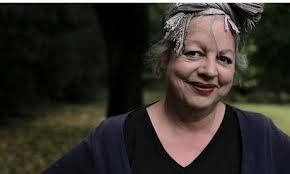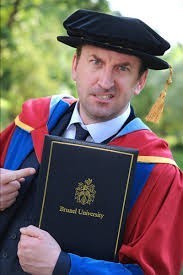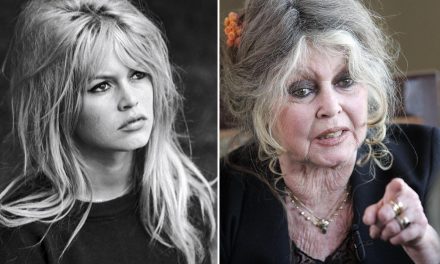 Jo Brand and Lee Mack were part of a panel discussing current issues in the profession at the launch of a new Centre for Comedy Studies Research. Dr John Roberts, chairing, posed the first question; what should a centre for comedy studies do, and Brand immediately responded that it shouldn’t ask ‘why aren’t women funny’ – a pre-emptive strike which got a round of applause from assembled academics, performers, fans and promoters. Jo Brand’s comment set the tone for a debate that often returned to the issue of the ‘other’ in popular comedy.
Jo Brand and Lee Mack were part of a panel discussing current issues in the profession at the launch of a new Centre for Comedy Studies Research. Dr John Roberts, chairing, posed the first question; what should a centre for comedy studies do, and Brand immediately responded that it shouldn’t ask ‘why aren’t women funny’ – a pre-emptive strike which got a round of applause from assembled academics, performers, fans and promoters. Jo Brand’s comment set the tone for a debate that often returned to the issue of the ‘other’ in popular comedy.
Deborah Williams who has worked in the industry as a performer, writer, promoter and producer, agreed with Jo Brand and Lee Mack’s assertion that being white, male, able-bodied, straight or English was not necessarily an advantage when it comes to stand-up; you live or ‘die’ based on how funny you are. Mack proposed that as a rule comedians are not the prettiest people, although Brand and Williams remembered the youthful beauty of Rob Newman back in the day…
Lee Mack’s recent appearance on Desert Island Discs was also discussed, as his comments on why there are not more women in comedy (the subject of his undergraduate dissertation in the 1990s) had received widespread attention. Mack’s assertion that there weren’t enough women starting out in stand-up, and therefore fewer women on television, had been perceived in some quarters as a slur on funny women – which was not his intention. Brand stepped in to discuss the lack of women on comedy panel shows, observing that their absence was more about personality and comedy style than innate gender characteristics. 
The panel challenged the mythology of a ‘golden age’ of political comedy in the 1980s, arguing that some of the ‘alternative’ comedians of that era were just following the zeitgeist, just as some recent comedians have moved back towards sexist and racist jokes under the guise of a postmodern, ‘ironic’ style of stand-up.
Questions from the floor included a reminder of organizations such as Funny Women, whose awards have helped raise the profile of women in comedy and work to change the culture of the industry. The panel agreed that comedy did not change social attitudes – but that a diverse range of comedy and comedians was a healthy cultural indicator.
One last question from a brave undergraduate raised the spectre of ‘political correctness’ – had the panel ever been influenced or limited by it? Lee Mack responded that political correctness had received a bad press over the years, where in fact it had shifted the industry away from racism and sexism in positive ways. Jo Brand agreed, arguing that ‘political correctness’ was a stick often used by certain newspapers to beat the Left with, often on spurious grounds.
The panel closed with some favourite jokes (you had to be there, I’m afraid), but the overwhelming impression was of a group of professionals who are aware of recent radical shifts in comedy – away from smaller clubs and into big arena tours – and willing to think about the ramifications of these movements in an era of austerity. This launch offered much to think about and bodes well for the future of the Centre for Comedy Studies Research.
Rosie White is Senior Lecturer in Contemporary Literature, Theory and Popular Culture at Northumbria University. Her first book, Violent Femmes: Women as Spies in Popular Culture was published by Routledge in 2008 and she is currently writing a second book on women and television comedy for I B Tauris.



